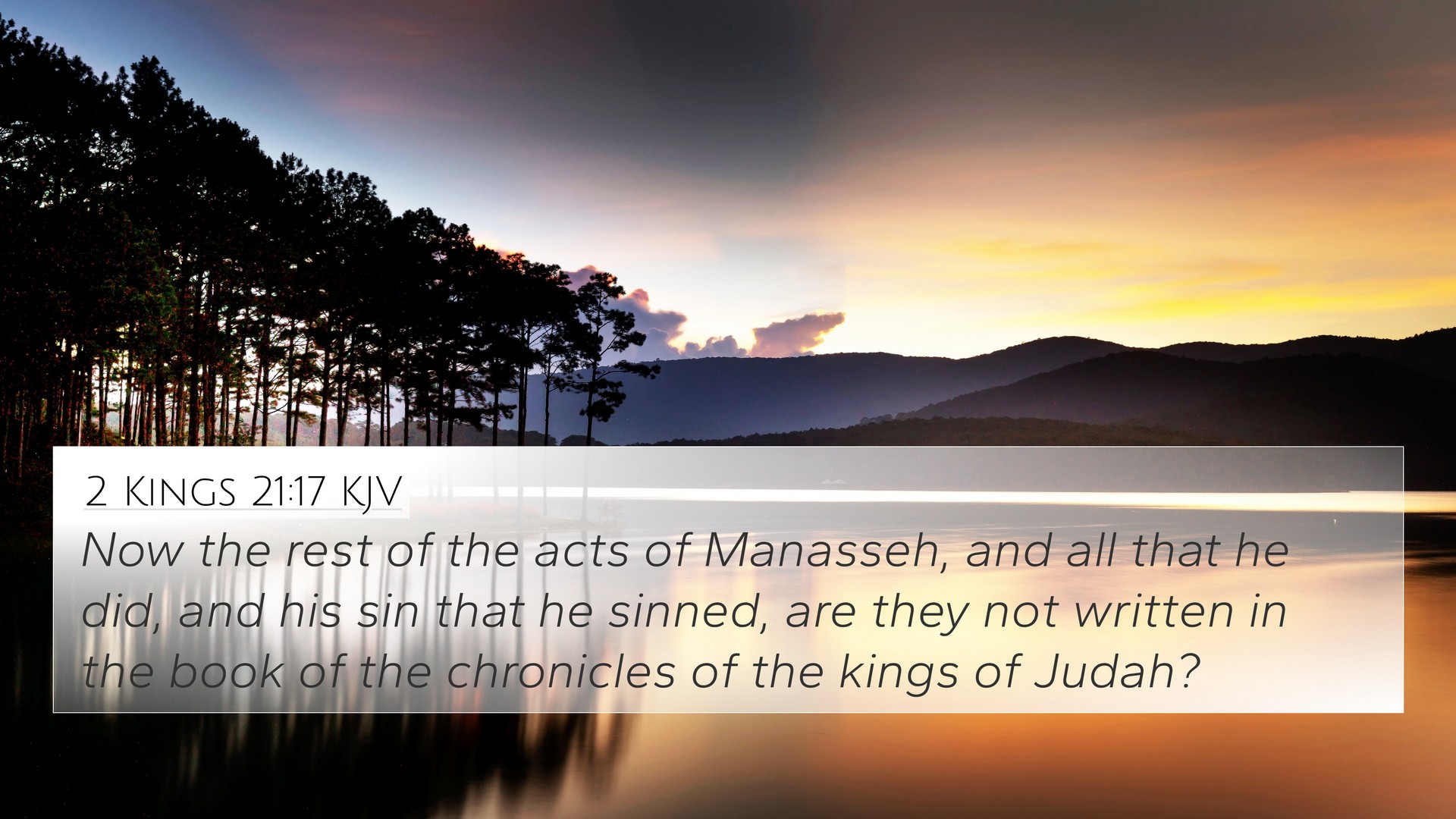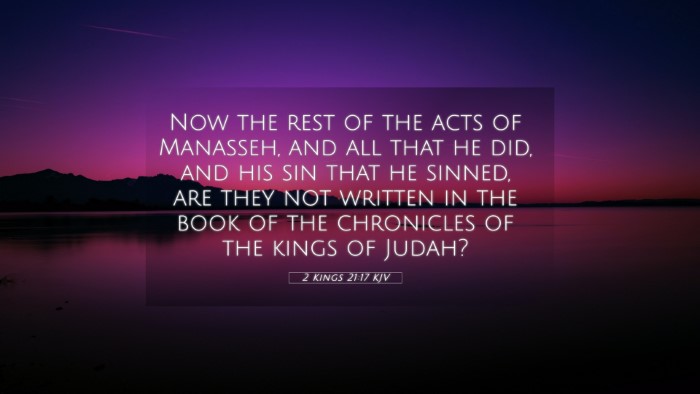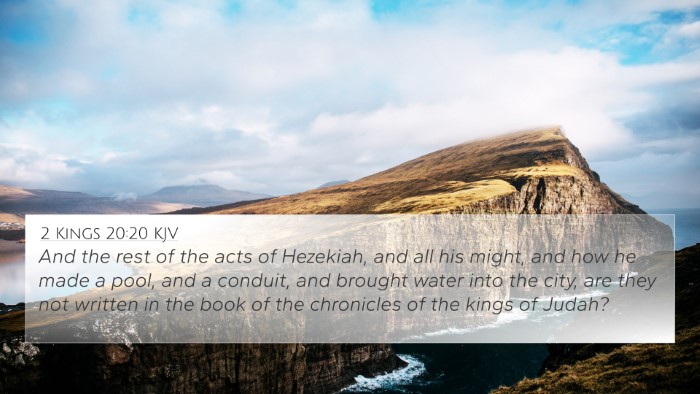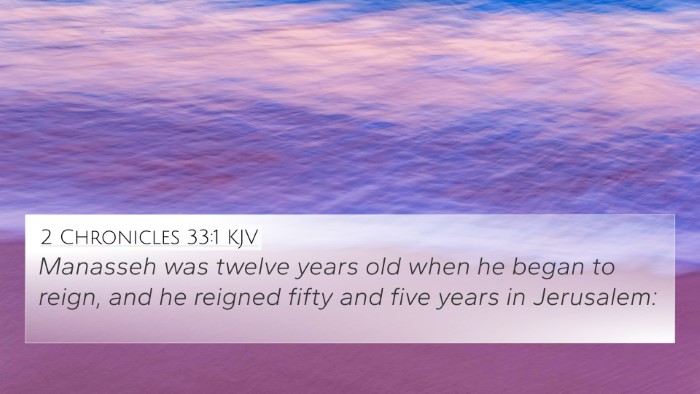Understanding 2 Kings 21:17
Verse: "And the rest of the acts of Manasseh, and his sin that he sinned, and the evil that he did in the sight of the Lord, are they not written in the book of the chronicles of the kings of Judah?" (2 Kings 21:17, KJV)
Context of 2 Kings 21:17
This verse comes from the account of King Manasseh of Judah, who was known for his deep idolatry and sins against God. This passage summarizes the record of his actions and highlights the importance of historical documentation found in the annals of the kings.
Interpretation of Key Themes
- The Consequences of Sin: Manasseh’s actions reflect the gravity of turning away from God, particularly in a role of leadership.
- Historical Record: The reference to “the book of the chronicles” indicates the importance of keeping history to understand God’s dealings with His people.
- Judgment and Mercy: Despite Manasseh’s severe sins, later records show his repentance and God’s mercy, which invites reflection on redemption.
Commentary Insights
Insights from various public domain commentaries such as Matthew Henry, Albert Barnes, and Adam Clarke provide a richer understanding of this scripture.
Matthew Henry
Henry emphasizes the severity of Manasseh's sins and the implications of his actions on the nation of Judah. He notes that while the verse speaks of Manasseh's evil deeds, it is crucial to understand that these actions had national consequences, affecting the spiritual state of the Israelites.
Albert Barnes
Barnes provides a deep dive into the significance of Judgement written in the chronicles. Thus, he links the text to God's continuing monitoring of human actions and the necessity of recording them for accountability before both society and God.
Adam Clarke
Clarke explores the redemptive arc, drawing attention to the consequences of sin juxtaposed with God's ultimate forgiveness. He suggests that while the record details wickedness, it also sets the stage for understanding grace and repentance.
Cross-References and Their Significance
2 Kings 21:17 connects notably with several other Bible verses, enriching the context of Manasseh’s narrative:
- 2 Chronicles 33:1-9: This passage elaborates on Manasseh's reign and his eventual repentance.
- Jeremiah 15:4: Refers to the consequences of Manasseh's reign, indicating the sin’s lasting impact on Judah.
- Deuteronomy 17:2-5: Highlights the laws against idolatry which Manasseh blatantly violated.
- 1 Kings 11:33: Reflects God’s judgment against leaders who lead His people astray.
- 2 Kings 24:3-4: Discusses the cumulative guilt of Judah, which leads to their eventual exile.
- Romans 2:6: "Who will render to every man according to his deeds." This relates to the judgment faced for actions.
- Acts 17:30-31: Speaks to God's patience yet imminent judgment based on one's actions.
Searching for Biblical Connections
For those seeking deeper understanding, 2 Kings 21:17 can lead one to explore:
- Cross-referencing Bible texts, such as:
- Psalm 78:58: Discusses God's anger towards idolatry and transgressions.
- Matthew 5:13-16: On the influence of the believer in society, linking with leadership accountability.
- Exploring tools for Bible cross-referencing helps identify connections between Old and New Testament themes.
Concluding Reflections
In summary, 2 Kings 21:17 serves as a poignant reminder of the impact of sin, the importance of historical accounts, and the hope found in the potential for redemption. Cross-referencing Biblical texts enhances the understanding of this verse, allowing one to see the broader narrative of God's justice and mercy unfolding throughout the Scriptures. The detailed exploration through comparative Bible verse analysis opens avenues for a more profound engagement with the biblical text, inviting believers and seekers alike to consider the teachings and patterns God establishes in His Word.




